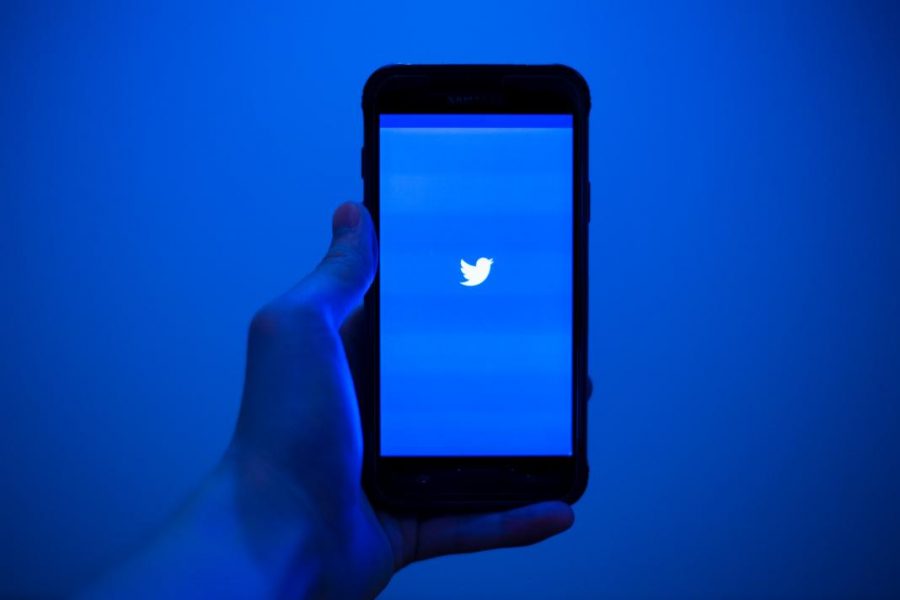Cowley: Stop Making Tone-Deaf Jokes about Ukraine
Social media pulled up on the phone on Wednesday, March 14, 2018. (Photo by Curtis Lin)
March 22, 2022
In Jan. 2020, tensions escalated between Iran and the United States. Despite the threat of war looming over the nation, the internet was full of memes and jokes about World War III. The scare died down within a week and so did the posts and jokes about the conflict. However, similar jokes started again after Russia invaded Ukraine in late February. Many jokes about Ukraine are made by those not impacted by the invasion. People in the U.S. joke that they’re going to be drafted to fight in Ukraine, that World War III is on the horizon and more. The invasion of Ukraine will have serious impacts on the world and to joke about the consequences demonstrates a level of detachment. Tone-deaf jokes online illustrate how sheltered we are and we need to learn to be more empathetic.
Social media platforms such as Twitter, Tik Tok and Instagram are rife with memes and posts about the conflict in Ukraine. While some posts spread awareness of current events, others poke fun at serious events. Jokes about nuclear warfare, drafting and Ukraine in general have become commonplace in online spaces. The majority of these memes are being posted from people living far away from the threat.
At this time, the U.S. has imposed economic sanctions on Russia, but has no plans of sending military forces into Ukraine because of the risks surrounding this type of action. Aside from an increase in prices on gas and groceries, the U.S. population remains largely unaffected by the conflict. I highly doubt the people in the U.S. posting about Ukraine will have to face this war.
Often when someone confronts someone else about an insensitive joke dark humor becomes the excuse for making these jokes. While dark humor can be used as a coping mechanism, people posting memes about Ukraine who have no connection to the conflict shouldn’t use it as an excuse.
Social media is so saturated that it often causes disconnects between reality and what’s online. The constant stream of news may also contribute to the disconnect people may feel around current events. Two-thirds of Americans report suffering from news fatigue and are burnt out from the 24 hour news cycle. The constant consumption of news makes one feel numb to it all which causes people to be less empathetic.
Since the invasion of Ukraine began updates have constantly been broadcasted online, along with a host of pictures and videos. The constant coverage may feel overwhelming and can sometimes make people forget that real people are suffering on the other side of the screen.
More than a million Ukrainian refugees have already fled their country. Many have lost loved ones, or have been separated from them at the border. Others have volunteered to take up arms and fight the invaders without any previous combat experience. Many people have volunteered to supply the troops at the front lines, putting their own lives at risk. Some are living in bomb shelters as they watch their homes be destroyed.
Empathy is important in times of hardship. Empathy allows us to connect more with those struggling and also allows us to make rational, compassionate decisions. The lack of empathy online contributes to the massive amount of off-color comments online. Having a moral compass guiding what we say and do creates a more aware and empathetic society. We should listen to and support the people struggling not use them as the punchline of a tweet.
The online space often makes us forget that there are real people involved in every joke. When discussing serious world issues try to see things from the perspective of someone in the middle of the issue. If they were standing right in front of you, would you make the same comments? Self-proclaimed dark humor online only sheds light on how sheltered we are and how we need to show more empathy to others.








